Ramesh Saigal
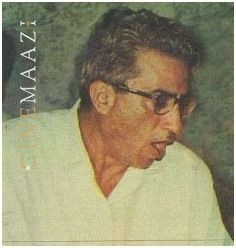
Subscribe to read full article
This section is for paid subscribers only. Our subscription is only $37/- for one full year.
You get unlimited access to all paid section and features on the website with this subscription.
Not ready for a full subscription?
You can access this article for $2 , and have it saved to your account for one year.
- Born: 2 March, 1918 (Multan, Punjab, British India)
- Died: 20 January, 1980 (Bombay, Maharashtra)
- Primary Cinema: Hindi
Director, producer, screenwriter, and actor, Ramesh Saigal is known for his social films which explored socio-economic inequalities in society within the framework of commercial cinema. His directorials include Renuka (1947), Shaheed (1948), Samadhi (1950), Shikast (1953), 26th January (1956), Phir Subah Hogi (1958), Railway Platform (1955), Shola Aur Shabnam (1961), Ishq Par Zor Nahin (1970), and Sankalp (1974). He is also credited with acting in the film Shikwa (1958). To him also goes credit for introducing Sunil Dutt in his directorial Railway Platform, changing the latter’s name from the original Balraj to Sunil.
Born on 2 March, 1918 in Multan, his career in films saw him work as assistant director, with his siblings involved in different departments of filmmaking. Debuting as a solo director, his early directorials include Ghar Ki Shobha (1944) and Renuka (1947). Shaheed, a romance which he both wrote and directed, depicts India’s struggle for Independence. It starred Dilip Kumar, Kamini Kaushal, Chandra Mohan, and Leela Chitnis, with music by Ghulam Haider. Shaheed was the highest grossing Indian film of 1948.
His directorial Samadhi, produced by Filmistan, was a patriotic drama addressing Subhash Chandra Bose and the Indian National Army. It revolved around Shekhar (Dilip Kumar), who abandons his wealth to join the INA, heeding the call by Bose to Indian youth to join in the anti-imperialist front. In Singapore, his elder brother Suresh (Shyam), who is a captain in the British army, has to collaborate with a British spy ring headed by Boss (Mubarak) and the dancer Dolly (Kaur). Shekhar falls in love with Lily (Nalini Jaywant), Dolly’s sister. Boss uses this to infiltrate the INA’s intelligence. In the war, the two brothers face each other and Shekhar is left for dead. He nevertheless makes it back alive and rounds up the British spies. Shekhar eventually dies in an operation to blow up a bridge on the India-Burma border. The film was described by Filmindia (May, 1950) as politically obsolete since India had already achieved Independence. It included the C Ramchandra hit Gore gore o banke chhore (sung by Lata Mangeshkar and Amirbai Karnataki), as well as the socialist-realist marching song Kadam kadam badhaye ja.
His Shikast had originally been started with Kamini Kaushal and Dilip Kumar in the lead. However, the film was left incomplete when Kaushal shifted to London with her husband. Saigal then had her replaced by Nalini Jaywant to play the female lead, and completed the film. Loosely based on the Bengali film Palli Samaj (1952), the film followed the life of Dr Ram Singh who, after a seven-year absence, returns to his village intending to sell his land and go back to the city. However, he changes his mind on seeing the peasants being mistreated by the local landlord and the landlord's sister, Sushma. The doctor and Sushma were once in love but, in his absence, she has become an embittered widow. Unwilling to see the peasants suffer further, Ram decides not to sell off his land and instead opens a school and a hospital. When plague breaks out, the doctor saves Sushma's son and the love between the two is rekindled. However, social mores prevent their love from being expressed freely, leaving Sushma to resort to further acts of cruelty in order to prevent Dr Ram from leaving. Meanwhile, her brother stirs up hostility against the pair by spreading malicious rumours which incite the superstitious villagers.
Dostoevsky’s story (Crime and Punishment) provided the bare outlines of Saigal’s Phir Subah Hogi, dealing with social injustice and inequality. It was an emotional plea for social justice in Nehruvian India. The film told the story of Ramu (Raj Kapoor), a poor law student in love with the even poorer Sohni (Mala Sinha). Sohni’s father is an alcoholic tailor in debt to the villainous Harbanslal who demands to marry Sohni. Ramu must pay off the villain if he is to win Sohni. He is caught robbing the safe of a vicious old moneylender and kills the man in self-defence. When the wrong man is arrested for the crime, a police detective puts pressure on Ramu to confess and save the innocent man from the gallows. Ramu eventually confesses and makes a moving plea on behalf of the right of the dispossessed to defend themselves against the real villains in society. The film includes the poet Sahir Ludhianvi’s famous critique of Nehru’s non-aligned liberalism: Chin-o-Arab Hamara. The song was picturised at night in Bombay’s easily recognisable square opposite the Victoria Terminus (now Chhatrapati Shivaji Maharaj Terminus). Other classic numbers from the film include Aasman pe hai khuda aur zameen pe hum sung by Kapoor to a cabaret dancer and intercut with the death of Sohni’s father. The best-known number is the title song which hails a new beginning - Woh subah kabhi to aayegi.
An interesting anecdote surrounds the signing up of music director Khayyam for the film. Apparently, when Saigal went across to lyricist-poet Sahir Ludhianvi’s house with the offer to pen the lyrics for the film, the latter readily agreed. When he asked who would score the music for the film, Saigal replied that with Raj Kapoor being the hero, his favourite Shankar–Jaikishan would naturally give the music, as they were a team. To this, Sahir pointed out that while they were undoubtedly a very successful and competent team, the music director should be someone who had read and understood Crime and Punishment. When Saigal asked whom he had in mind, Sahir named Khayyam, and thus did Khayyam come to compose the memorable music of this important social film. The film also established Mala Sinha’s reputation as a versatile actress, who accepted unconventional roles.
Saigal was instrumental in bringing Sunil Dutt to films, giving him his first break in Railway Platform. Dutt had been hosting the show Lipton Ki Mehfil on Radio Ceylon at the time. He had met Saigal while covering the latter’s directorial Shikast. Impressed by Dutt’s personality and voice, he offered him a role in his upcoming film. He also changed Dutt’s first name from Balraj to Sunil, in order to avoid confusion with another famous actor by the same first name – Balraj Sahni. When Railway Platform released, the enthusiastic Dutt had invited his entire village to come to Bombay to watch it!
A love triangle between a princess, a poor man and his lover at a train station, Railway Platform was cinematographed by the noted cinematographer of the 1950s, Dronacharya.
One of Saigal’s favourite actors was Rehman, who mostly essayed the suave antagonist in films. Saigal, like other Rehman favourites such as Guru Dutt, DD Kashyap, and Yash Chopra, did not mind the actor’s insistence on retakes during shooting, willingly exposing a few extra reels immaterial of the cost. While his directorials include Ghar Ki Shobha (1944), and Bharti (1956), he also produced Shola Aur Shabnam, Phir Subah Hogi, and Shikast. As a screenplay writer, he penned Ishq Par Zor Nahin (1970), Shola Aur Shabnam, Railway Platform, as well as the screenplay and dialogue for Anarkali (1953).
His shelved film Shikwa cast Dilip Kumar and Nutan together when they were young and popular. The pair did not act together in their heyday and only came together much later in Subhash Ghai’s Karma (1986), followed by Kanoon Apna Apna (1989). Hence, watching them onscreen in Saigal’s incomplete directorial would have been a treat, to see them as a leading pair, their astounding acting abilities matching each other’s. An early advertisement of the film in Filmindia had touted the film as ‘The story of a man who challenged God…!’ Incidentally, Saigal had worked with Dilip Kumar in Shaheed, giving the actor one of his early hits.
Ramesh Saigal passed away on 20 January, 1980.
References
Sources: https://upperstall.com/features/incomplete-films-shikwa/
https://www.imdb.com/name/nm0756488/
https://www.hmoob.in/wiki/Ramesh_Saigal
https://www.imdb.com/name/nm0756488/bio?ref_=nm_dyk_trv_sm#trivia
https://indiancine.ma/FZW/info
https://indiancine.ma/IVK/info
-
Filmography (3)
SortRole
-
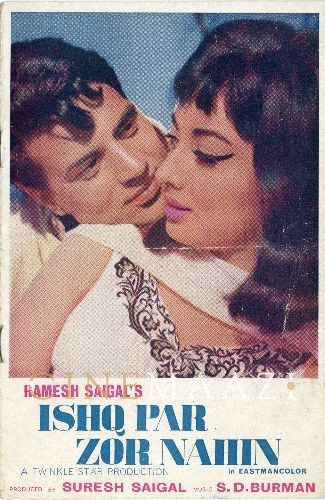
Ishq Par Zor Nahin 1970
-
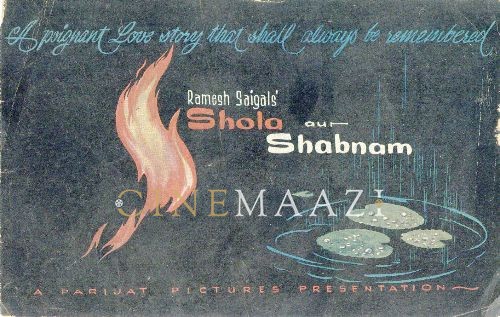
Shola Aur Shabnam 1961
-

26th January 1956
-







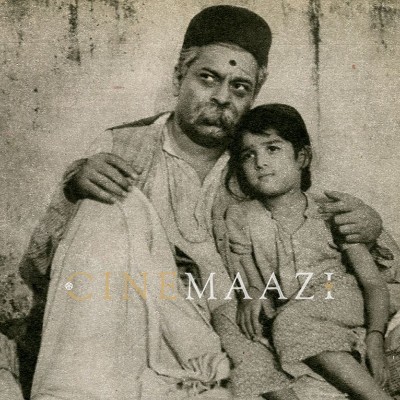
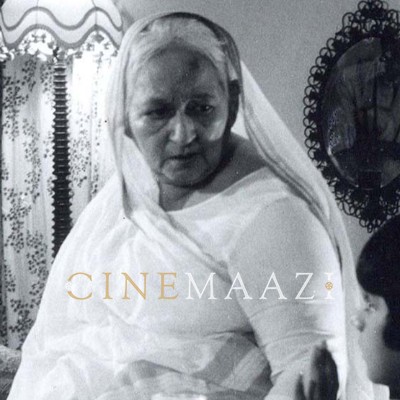

.jpg)



